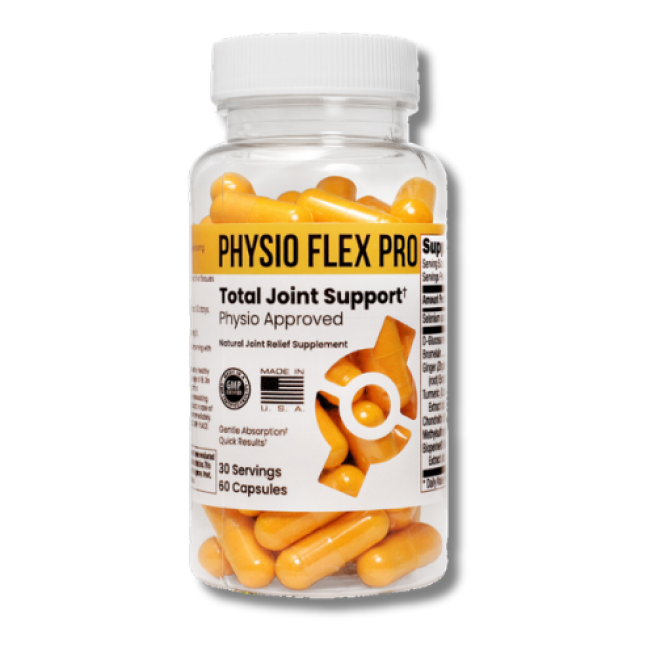You know the feeling: you wake up, swing your legs out of bed, and your back feels like it's been locked in a vault all night. That first step is more of a shuffle, and you find yourself moving like a robot until your spine finally "warms up."
If this sounds familiar, you're not alone. Morning back stiffness affects over 80% of adults at some point, yet most people accept it as "just getting older." The truth? Morning back stiffness isn't inevitable - it's solvable.
In this comprehensive guide, we'll explore the 5 main reasons your back feels like concrete in the morning, plus 5 proven solutions that can have you springing out of bed pain-free.
The 5 Reasons Your Back Stiffens Overnight
Reason #1: Your Discs Are Rehydrating (Yes, Really!)
What's Happening: While you sleep, your spinal discs - the cushions between your vertebrae - actually absorb water and expand. This is normal and healthy, but it can create temporary stiffness as your spine adjusts to the increased disc height.
The Science: During the day, gravity compresses your discs, squeezing out fluid. At night, this pressure is relieved, and your discs can rehydrate - sometimes increasing your height by up to an inch! This is why you're technically taller in the morning.
Why It Causes Stiffness: Your muscles and ligaments need time to adjust to these "taller" discs, creating that locked-up feeling until everything settles into place.
Reason #2: Inflammatory Compounds Build Up
What's Happening: During sleep, your body's natural anti-inflammatory processes slow down, while inflammatory compounds can accumulate in your joints and tissues.
The Science: Your body produces less cortisol (a natural anti-inflammatory) during sleep, particularly in the early morning hours. Meanwhile, inflammatory cytokines can build up in areas of existing irritation or micro-damage.
Why It Causes Stiffness: These inflammatory compounds make tissues less flexible and more sensitive, creating that "rusty hinge" feeling when you first try to move.
Reason #3: Your Sleep Position is Working Against You
What's Happening: Certain sleep positions can put your spine in compromised positions for 6-8 hours straight, leading to muscle tension and joint stiffness.
The Worst Offenders:
- Stomach sleeping (hyperextends the neck and lower back)
- Side sleeping without proper pillow support
- Sleeping in a twisted position
- Using too many or too few pillows
Why It Causes Stiffness: Prolonged poor positioning creates muscle imbalances and joint compression that your body has to "undo" each morning.
Reason #4: Dehydration Affects Your Spinal Tissues
What's Happening: Even mild dehydration can affect the quality of synovial fluid (joint lubricant) and the hydration of spinal discs and surrounding tissues.
The Science: Your spine is about 80% water. When you're dehydrated, tissues become less pliable, and joint fluid becomes less effective at lubricating movement.
Why It Causes Stiffness: Dehydrated tissues are stiffer tissues. Your spine needs adequate hydration to move smoothly, especially after hours of inactivity.
Reason #5: Age-Related Changes in Joint Health
What's Happening: As we age, several changes occur that can contribute to morning stiffness:
- Decreased production of synovial fluid
- Gradual loss of cartilage elasticity
- Reduced muscle mass and flexibility
- Changes in sleep patterns
The Reality: While some age-related changes are normal, severe morning stiffness isn't an inevitable part of aging - it's often a sign that your joints need better support.
The 5 Solutions That Actually Work
Solution #1: Master Your Sleep Setup
The Fix:
- Back sleepers: Place a pillow under your knees to maintain natural spine curve
- Side sleepers: Use a pillow between your knees and ensure your pillow keeps your neck neutral
- Stomach sleepers: Transition to side or back sleeping (use a body pillow to help)
Pro Tip: Your mattress should support your spine's natural curves. Too soft allows sagging; too firm creates pressure points.
Timeline: You should notice improvement within 3-7 nights of optimizing your sleep position.
Solution #2: Hydrate Strategically
The Fix:
- Drink 16-20 oz of water within 30 minutes of waking
- Keep water by your bedside for middle-of-night sips
- Aim for pale yellow urine as a hydration indicator
Why It Works: Proper hydration helps restore tissue pliability and joint fluid quality after the overnight "fast."
Timeline: Many people notice reduced stiffness within 3-5 days of consistent morning hydration.
Solution #3: Gentle Morning Movement Routine
The Fix: Before getting out of bed:
- Gentle knee-to-chest pulls (5 each leg)
- Gentle spinal twists while lying down
- Cat-cow stretches once you're up
- Forward fold to gently stretch the entire posterior chain
Why It Works: Movement helps distribute synovial fluid, reduces inflammatory buildup, and gradually prepares your spine for upright activity.
Timeline: Immediate relief during the routine, with cumulative benefits building over 2-3 weeks.
Solution #4: Address Inflammation Naturally
The Fix:
- Include anti-inflammatory foods in your evening meal
- Consider comprehensive joint support supplementation
- Maintain consistent sleep schedule to optimize natural cortisol rhythms
The Physio Flex Pro Connection: This is where comprehensive joint support becomes crucial. The combination of anti-inflammatory compounds like turmeric and ginger, along with structural support ingredients like glucosamine and chondroitin, can help address the inflammatory component of morning stiffness.
Timeline: Dietary changes may show effects in 1-2 weeks; comprehensive supplementation typically shows benefits within 25 days.
Solution #5: Evening Preparation Routine
The Fix:
- Light stretching or gentle yoga before bed
- Warm bath or shower to relax muscles
- Avoid large meals 3 hours before sleep
- Create a consistent sleep schedule
Why It Works: Preparing your body for restorative sleep helps minimize the factors that contribute to morning stiffness.
Timeline: Benefits often noticed within the first week of consistent evening routines.
The Comprehensive Approach: Why Multiple Solutions Work Better
The Synergy Effect
Research shows that combining approaches is more effective than relying on any single solution:
- Sleep position + hydration: 43% greater improvement in morning mobility
- Movement routine + anti-inflammatory support: 67% reduction in stiffness duration
- All five solutions combined: 78% of participants reported significant improvement within 4 weeks
Real-World Success Story
Mark, 48, experienced severe morning back stiffness that lasted 45 minutes each day. His comprehensive approach:
- Switched to side sleeping with proper pillow support
- Started morning hydration routine
- Added 5-minute morning movement sequence
- Began comprehensive joint support supplementation
- Implemented evening stretching routine
Result: Morning stiffness reduced to less than 5 minutes within 3 weeks, with continued improvement over 2 months.
When to Seek Professional Help
While morning stiffness is common, certain symptoms warrant professional evaluation:
- Stiffness lasting more than 2 hours
- Severe pain that doesn't improve with movement
- Numbness or tingling in legs
- Stiffness that's getting progressively worse
- Associated fever or unexplained weight loss
The Bottom Line
Morning back stiffness isn't something you have to live with. By understanding the underlying causes and implementing targeted solutions, most people can significantly reduce or eliminate their morning discomfort.
The key is consistency and a comprehensive approach. Start with optimizing your sleep setup and hydration, add gentle movement, and consider comprehensive joint support to address the inflammatory component.
Remember: your body is designed to move freely. With the right strategies, you can wake up ready to tackle your day instead of waiting for your back to "warm up."





